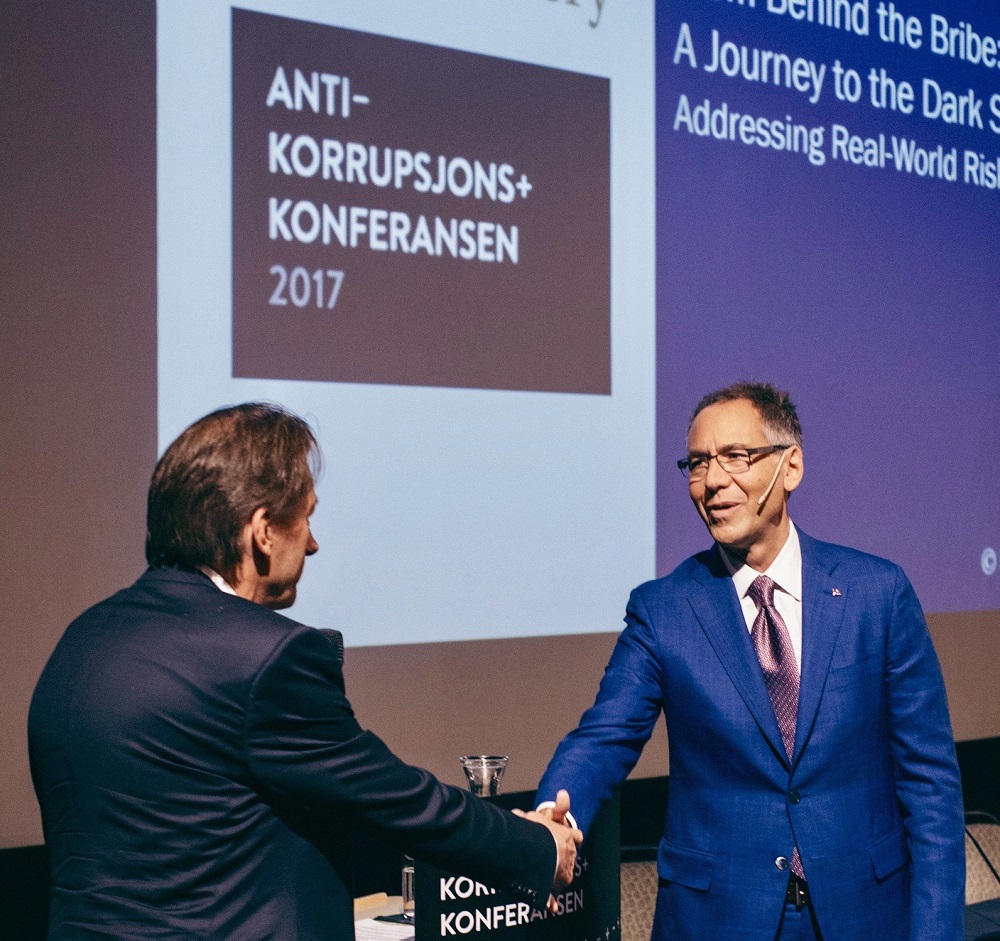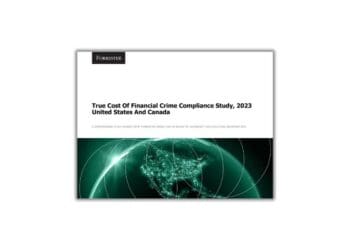Highlights from the Oslo Anti-Corruption Conference
Fresh on the heels of the Anti-Korrupsjons+Konferansen in Norway, Richard Bistrong offers CCI a look inside the conference and details some of the key takeaways.
In 2015, I had the honor of participating in the Oslo Anti-Corruption Conference, or Anti-Korrupsjons+Konferansen, and that engagement was via video, as I did not yet have the restoration of international travel privileges. So, it was an incredible honor this year when Helge Kvamme (pictured), Partner in Investigations & Compliance at the Norwegian Law Firm Selmer DA, asked me on behalf of the event organizers to come to Oslo to present live at this year’s conference on June 8 and 9. Besides the fact that it was wonderful to spend the week in Oslo, which is one of the most interesting and charming of European capitals, it was an incredible two days; right from the start, there was some very serious messaging, as the opening keynote address was by Erna Solberg, the Prime Minister of Norway. That says a lot.
The panels were fascinating and included some of the most experienced anti-corruption practitioners on a global basis, but as I have shared before, it’s often during meal times and breaks where there’s a great deal of discourse and learning. Some of my “chatting” partners over coffee and meals included Trond Eirik Schea, Chief of ØKOKRIM (Norwegian National Authority for Investigation and Prosecution of Economic and Environmental Crime); Guro Slettemark, Secretary General, Transparency International Norge (also an organizer); and Tina Søreide, Professor of Law and Economics, Norwegian School of Economics (NHH). It’s a challenge to describe how these conversations are the source of critical thinking and inspiration when it comes to anti-corruption challenges.
A few of my takeaways included an address by David Green CB QC, Director of the Serious Fraud Office (David was the HMRC Prosecutor who signed my own Immunity from Prosecution Agreement in the U.K.), who described the SFO’s investigative teams and how it’s not unusual for investigative journalists’ reports to “flag up” individuals and organizations that might require further scrutiny. He talked about the SFO’s digital forensic unit and their power to compel information from potential witnesses as well as the production of documents.
He also addressed several current (and publicly reported) investigations where charging decisions relating to individuals will be made this summer and how the new U.K. DPA regime has served a policy aim designed to limit collateral damage to innocent parties (employees and customers) by allowing a company to draw a line in the sand as to the termination and mitigation of corrupt conduct. As he said, it allows a multinational to “move on.” He also detailed how DPAs are by invitation only, but in the U.K., they include Judicial participation and control, unlike the DOJ regime. He also shared an investigative tool which I found fascinating, just by name, called an “Unexplained Wealth Order,” which is an investigative order requiring the holder of an asset to account for it.
Later in the day, there was a panel titled, “International Developments – Looking Back: The Most Important Takeaways from Key Enforcement Actions, and Settlements – Looking Ahead: Updates on New Priorities.” It might as well have been titled, “anti-bribery all-stars.” We heard from Nicola Bonucci, Director for Legal Affairs, OECD; Anton Pominov, Director General, TI Russia; Lucinda Low, Partner, Steptoe & Johnson; and William “Billy” Jacobson, Partner, Orrick.
Nicola Bonucci shared how there were 833 current bribery allegations in the OECD working group matrix and how the “rogue employee” is being displaced by corrupt systems. He also addressed how the OECD is thinking of bribery in the greater scheme of transnational economic and financial crime, and how the level of international anti-bribery cooperation and enforcement is unprecedented, but that more sharing of international financial and forensic information is needed. That was a sentiment echoed later in the day when George “Ren” McEachern, Supervisory Special Agent, FBI, who is responsible for FCPA, Kleptocracy & Antitrust Matters, talked about the International Foreign Bribery Taskforce (IFBT).
Lucinda Low also addressed how bribery is a part of wider illegal economic and transnational crime. She focused on the “demand side” of bribery, where local enforcement is “spottier” than the supply side and which still requires more indigenous political will, with an independent judiciary and empowered prosecutors. She shared how many countries still don’t have the political resolve or adequate investigatory and prosecutorial tools to pursue domestic “demand corruption.” And she pointed to how the Panama Papers have exposed the weak links of addressing corruption, where there are continued flows of illegal financial activity to those on both sides of corrupt transactions.
Billy Jacobson, the DOJ fraud prosecutor who made the “target” call to my own defense attorney in 2007, discussed the choices a company faces when considering voluntary disclosure and cooperation, versus the calculation of internal mitigation and remediation. He addressed the Yates Memo and shared the challenges of pursuing individual cases, where companies might be more prone to cooperation but where individuals, facing significant jail time, might have a much different set of considerations and risk factors in deciding to cooperate or challenge the government’s evidence in the courtroom.
While this might be at best a high-level roundup, I hope it gives readers encouragement and motivation to attend and support these global conferences, which are unique opportunities to engage with peers and leaders from around the world. And, finally, it’s a long way from New York to Oslo, so I’d like to personally thank the Anti-Korrupsjons+Konferansen organizers for thinking of my own experience and perspective in bringing value to this “anti-bribery all-star” event.
Photo courtesy and (c) Richard Bistrong










